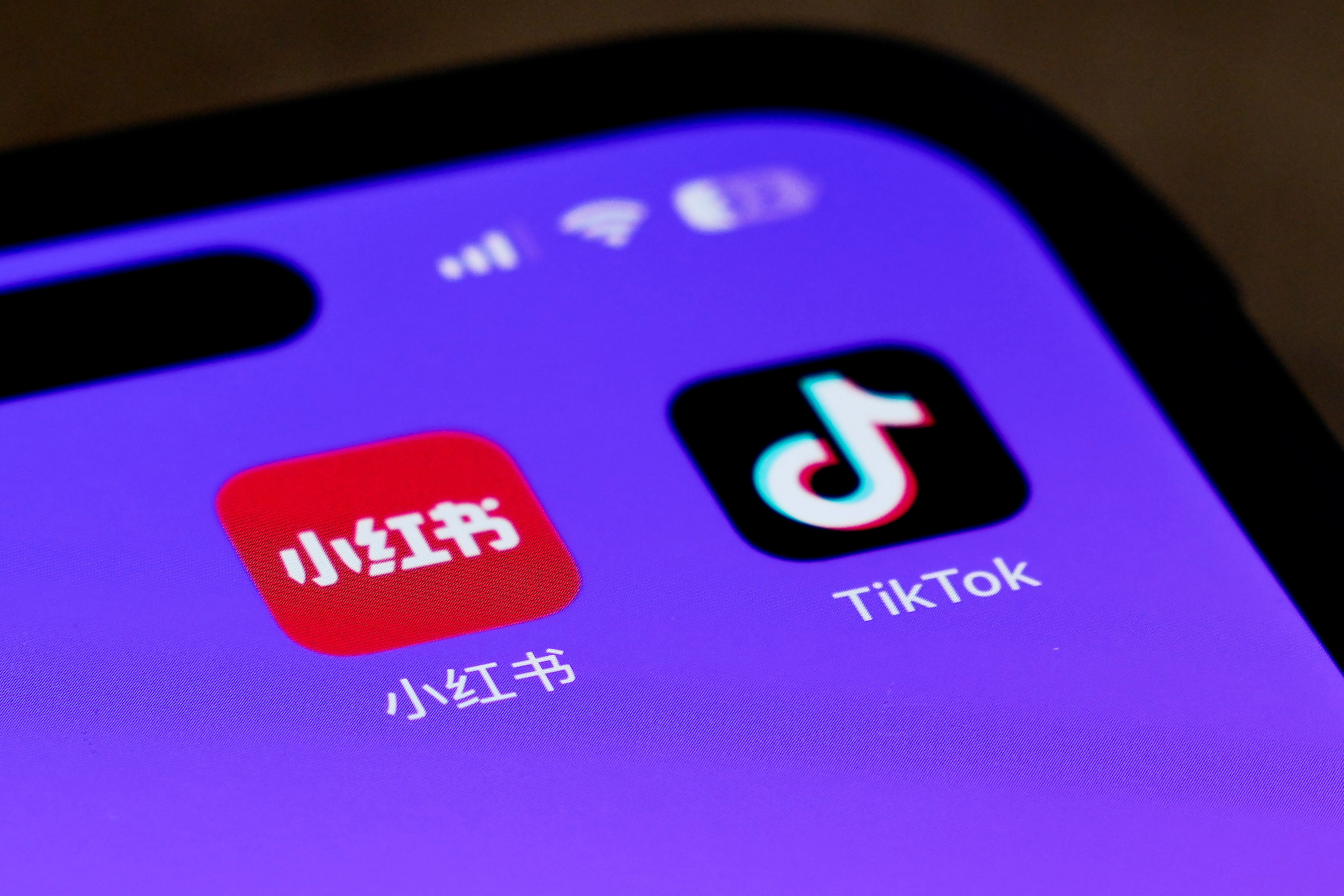TikTok refugees are pouring to Xiaohongshu. Here's what you need to know about the RedNote app
A rare wave of U.S.-China camaraderie broke out online in recent days as “refugees” from the popular short video platform TikTok poured onto a Chinese social media platform to protest a now-delayed ban on the service

As the fate of TikTok hangs in the balance, U.S. TikTok users are flocking to the Chinese social media app Xiaohongshu, also called RedNote – making it the top downloaded app in the U.S.
Some of the “TikTok refugees,” as they call themselves, say the TikTok alternative, a Chinese app, is being chosen in protest of the TikTok ban. Here's what you need to know about Xiaohongshu.
What is Xiaohongshu, the Chinese app that ‘TikTok refugees’ poured to?
It is a lifestyle social media app which allows users to post short videos, photos and texts, and it also includes functions like live-streaming and shopping.
A rare wave of U.S.-China camaraderie broke out online in recent days as “refugees” from the popular short video platform TikTok poured onto a Chinese social media platform to protest a now-delayed ban on the service.
They were met with surprise, curiosity and in-jokes on Xiaohongshu – literally, “Little Red Book” – whose users saw English-language posts take over feeds almost overnight.
Americans introduced themselves with hashtag TikTok refugees, ask me anything attitude and posting photos of their pets to pay their hosts’ “cat tax.” Parents swapped stories about raising kids and Swifties from both countries, of course, quickly found each other.
It’s a rare moment of direct contact between two online worlds that are usually kept apart by language, corporate boundaries, and China’s strict system of online censorship that blocks access to nearly all international media and social media services.
Why are Americans downloading a Chinese app?
Chinese and American users rarely find themselves in the same online spaces, in large part because China’s “Great Firewall” blocks internationally popular platforms like Instagram and X. Even TikTok blocks users in China, directing them to its onshore sister platform Douyin.
But as the deadline approached for a law that would ban TikTok in the United States beginning Jan. 19 unless the popular social media program is sold by its China-based parent company, some began migrating to Xiaohongshu.
“When they tell us you can’t have a Chinese app anymore, we go straight to another Chinese app,” said Katie Lawson, a farmer in Tulsa, Oklahoma, who has posted videos of her chickens and saved many recipes from the app. “We’re going to go explore that country and their values ourselves. We’re going to go straight to the source.”
What’s the difference between TikTok and Xiaohongshu?
Although TikTok is owned by a Chinese parent company, the short video platform popular with Generation Z is an international app whose content and users are walled off from those of the Chinese version, Douyin.
Xiaohongshu’s 300 million monthly active users are overwhelmingly Chinese – so much so that parts of its interface have no English-language version. They skew heavily female, often addressing strangers simply as “sister.”
Known for a friendly atmosphere that focuses on user reviews and peer-to-peer advice, it’s one of China’s fastest-growing apps. Foreign celebrities – including Mariah Carey and Elon Musk’s mother Maye Musk -- are longtime users. Kim Kardashian joined the app back in 2018.
How many Americans have joined Xiaohongshu?
The company hasn’t released official data, but the app has reached No. 1 in free downloads on both iOS and Android, remaining in that spot for days.
On the platform, two versions of the TikTok refugee hashtag have over 24 million posts, with related posts appearing at the top of many users’ feeds.
What are users talking about?
A large number of American users say they’ve received a warm welcome from the community, with #TikTokrefugee. “Welcome the earth/global villagers” remains the top one trending topic on Xiaohongshu, with 8.9 million views on Thursday.
Users from both countries are comparing notes on grocery prices, rent, health insurance, medical bills and the relationship between mother-in-law and daughter-in-law. Parents talk about what the kids learn in school in two countries. Some have already joined book clubs and are building up a community.
American users asked how Chinese see the LGBTQ community and got warned that it was among sensitive topics, Chinese users taught Americans what are sensitive topics and key words to avoid censorship on the app. Chinese students pulled out their English homework, looking for help.
How is the Chinese government responding?
Chinese state media, which have long dismissed U.S. allegations against TikTok, have welcomed the protest against the ban.
People’s Daily, China’s biggest national newspaper, said in an op-ed about TikTok refugees on Thursday that says the TikTok refugees found a “new home,” and “openness, communication, and mutual learning are the unchanging themes of mankind and the heartfelt desires of people from all countries.”
The Chinese Ministry of Foreign Affairs didn’t respond immediately to AP’s interview request.
_____
Cohen reported from Bangkok.
Bookmark popover
Removed from bookmarks